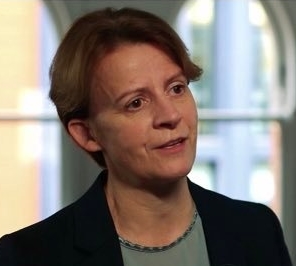A new report from The Royal College of Emergency Medicine finds that patients presenting with mental health problems are twice as likely to spend 12-hours, or more, in Emergency Departments than other patients.
National data show that nearly one in eight (12%) mental health patients presenting to an Emergency Department in crisis face a 12-hour stay from time of arrival, compared with nearly one in 16 (6%) of all attendances.
A recent SNAP survey of Emergency Departments found that more than one third of clinical leads reported patient stays of 72 hours or more in the last week, for patients with mental health needs.
‘Mental Health Emergency Care’ is the latest report in our series of explainers looking at the web of issues facing Emergency Departments. The report highlights that while patients with mental health presentations account for a very small proportion of Emergency Department attendances, they spend a disproportionate amount of time waiting for a mental health bed if they need admission.
Often, it is the patients who are most unwell and vulnerable that waits the longest. Those of greatest concern are patients waiting for a mental health bed, patients waiting for an assessment under the Mental Health Act, and Children and Young People presenting in crisis.
The prevalence and complexity of the mental health needs of children and young people increased during the pandemic, while capacity is struggling to meet surging demand. Half of Emergency Departments in England reported waits of 12 to 24 hours for a child or young person to see a specialist mental health professional, despite the accepted standard for adults being a one hour wait to be seen. If admission is needed, 46% of Emergency Departments reported that children and young people will wait more than 48 hours for a bed, with two respondents reporting a wait of five days in the Emergency Department.
The report looks in detail at factors contributing to these long waits, such as the reduction in mental health beds, inadequate numbers of children and adolescent mental health professionals, and poor organisation of professionals to assess patients under the Mental Health Act. It also examines the consequences for patients and departments and makes wide reaching recommendations.
Commenting on the findings of the report, Dr Katherine Henderson, President of the Royal College of Emergency Medicine, said: “The system is failing patients who present to Emergency Departments in mental health crisis. Those waiting the longest are children and young people, patients waiting for admission to a bed, and patients waiting for assessment under the Mental Health Act.
“It is unacceptable. We know long waits in a busy and crowded environment are harmful for any patient, but for these patients it can cause deep distress and upset and worsen their mental state. We must do more to ensure that these patients are seen, treated, and directed to the right care quicker.
“These patients presenting to Emergency Departments are extremely vulnerable, they are in crisis and seeking Emergency Care, yet are left waiting for hours and even days, before being treated and admitted.”
The explainer also shows that the UK has only 37 psychiatric beds per 100,000 population – far lower than the OECD average of 71 psychiatric beds per 100,000 population - and that since 1987, over 48,000 NHS mental health beds have been cut in England, with 5,000 mental health beds having been cut since 2011 alone.
Dr Henderson said: “Data show that bed occupancy at mental health trusts averaged nearly 90% between 2017 and 2020, 5 percentage points higher than the recommended 85%. The NHS mental health bed numbers are clear; capacity does not meet demand.
“While the move towards a provision of community mental health care has been positive, the cuts to emergency mental health care beds have been devastating. Now, the most vulnerable and desperate patients are truly suffering.
“We urgently need to see an increase in mental health bed capacity, so we are able to admit these patients to a bed and provide the care they urgently need. We regularly hear heart-breaking stories of young people being admitted a long way from their home and family.
“We urge the new Prime Minister and new Health Secretary to prioritise Mental Health care provision in Emergency Departments, especially ahead of winter. We are failing these patients and they are suffering; our report and supporting survey show the extent of this crisis.
“We need urgent action now. To ensure we are able to quickly and effectively help vulnerable patients in crisis the government must increase mental health bed capacity in Trusts.
“Capacity for Children and Adolescent Mental Health Services (CAMHS) is especially important, and CAMHs should be expanded to 24/7 so that children and young people can be assessed and triaged whenever they present at Emergency Departments, rather than face long waits for these services to open.”












